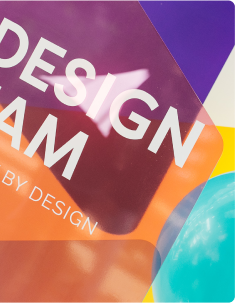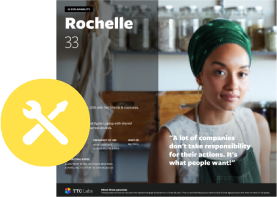We bring together policy makers, privacy experts and product creators – using design thinking to improve trust, transparency and control in digital products.


We group our work, research, tools and reports tools into
broad themes that we add to over time
As young people's identities change, so does their understanding of data privacy and safety. Explore insights and resources from multistakeholder collaboration with global third-party experts, parents and young people.
Explore ThemeIt’s impossible to talk about digital services today without talking about data. We talk constantly about the pros and cons, the dangers and benefits... but do we talk enough about what data actually is?
Explore ThemeWe've created a set of tools to guide product owners who are looking to build essential data controls and transparency for people. Explore guidelines for startups to take action and design for both data privacy and great customer experiences.
Explore ThemeExploring new and developed cryptographic techniques that aid data privacy
Explore ThemeExplore tools and inspiration around explaining how AI mechanisms work, through hands-on prototyping, testing and iterating towards implementation.
Explore ThemeAlong with our partners, we author and publish reports summarising
our work and providing actionable product design insights.
We’re introducing Teen Accounts on Instagram. Teen Accounts have built-in protections that limit who can contact them and the content they see. These accounts also provide new ways for teens to explore their interests.
Starting September 17, we’ll automatically place teens into Teen Accounts on Instagram, and teens under 16 need a parent’s permission to change any of their account settings to be less strict. If parents want more oversight over their older teen's (16+) experiences, they simply have to set up parental supervision. These settings apply to teens already using Instagram and to teens signing up to the app. You can find a full overview of Teen Accounts in our announcement.
We worked tirelessly and thoughtfully to build Teen Accounts. We’re proud of our work to reimagine the app for teens, and we’ve made many important design decisions along the way. We want to be transparent about these decisions and explain how our research and consultation with experts informed them – so we’re sharing a detailed overview of our efforts in this report.
As part of Meta’s commitment to build the metaverse responsibly while providing safe and age-appropriate experiences, this report shares learnings from multistakeholder exploration on the topic of social, multiplayer online games on mobile and immersive settings with parents and their children aged 10-13 in the US, UK, Ireland and Australia, paired with expert observation and consultation sessions with third-party advisors.
Our goal was to elevate the perspectives of families and third-party advisors to inform our product design strategy for child access to age-appropriate immersive social experiences in Meta Horizon Worlds on mobile and in Meta Quest.
This report is intended for government, academia, civil society and industry. We are publishing learnings and outputs to share openly with the broader community of expertise around age-appropriate digital design.
Product makers implement a wide variety of privacy education tools in their apps to inform users about data practices and empower them to make informed privacy choices. They are generally understood to be helpful, but measuring the effectiveness of privacy education can be challenging.
In this report, we explain the challenges with assessing the success of privacy education products and share Meta’s approach to measuring effectiveness through case studies on Instagram’s location data transparency feature and Meta’s Privacy Policy updates.
At Meta, our approach involves defining specific, contextual success criteria for each privacy education experience, designing with these outcomes in mind, and using fit-for-purpose methods such as feedback surveys to ensure those goals are met.
As more and more people engage with digital products and services, there is a need to find new ways of empowering them over their personal data and privacy. Transparency, education, controls and consent moments have emerged as key UX tools in achieving this aim.
This best practice guide focuses on consent moments. How can we design consents that empower users, balancing their need for control with usability?
The technologies which underpin XR and the metaverse continue to develop rapidly, and researching user experience (UX) and data use in the metaverse is crucial to ensure that these immersive technologies prioritizes user-centric design, transparency, and privacy.
Building on TTC Labs' multi-year effort, in 2021-22 we conducted co-design research and consultation with teens, guardians and experts on relevant privacy, safety and wellbeing considerations for online supervision.
This report presents the findings and impact of this action research project on online supervision, where we held co-design sessions with 166 teens and 156 guardians paired with consultation sessions with 125 experts across 10 countries (US, UK, Ireland, Australia, Brazil, Japan, India, Mexico, Senegal and Côte d’Ivoire).
Introducing
Open Loop
A Global Experimental Governance Program bridging tech and policy innovation all over the world.
Visit Open LoopWe publish research work unpacking the challenge of building trust,
transparency & control into product experiences.
find everything you need to organise and conduct workshops
around the themes of trust, transparency and control.
Trust, Transparency & Control Labs is a cross-industry effort to create innovative design solutions that put people in control of their privacy.
Initiated and supported by Meta, and built on collaboration, the movement has grown to include hundreds of organisations, including major global businesses, startups, civic organisations and academic institutions.






Passionate about
Trust, Transparency & Control?
Don’t miss any news, reports, or research we publish in this area — sign up to the TTC Labs email list and we’ll keep you in the loop with monthly emails.